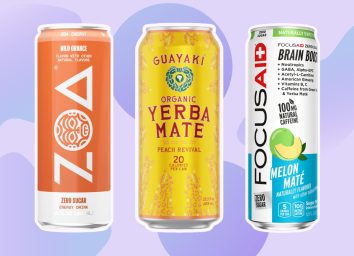12 Dangerous Side Effects of Energy Drinks, According to Science
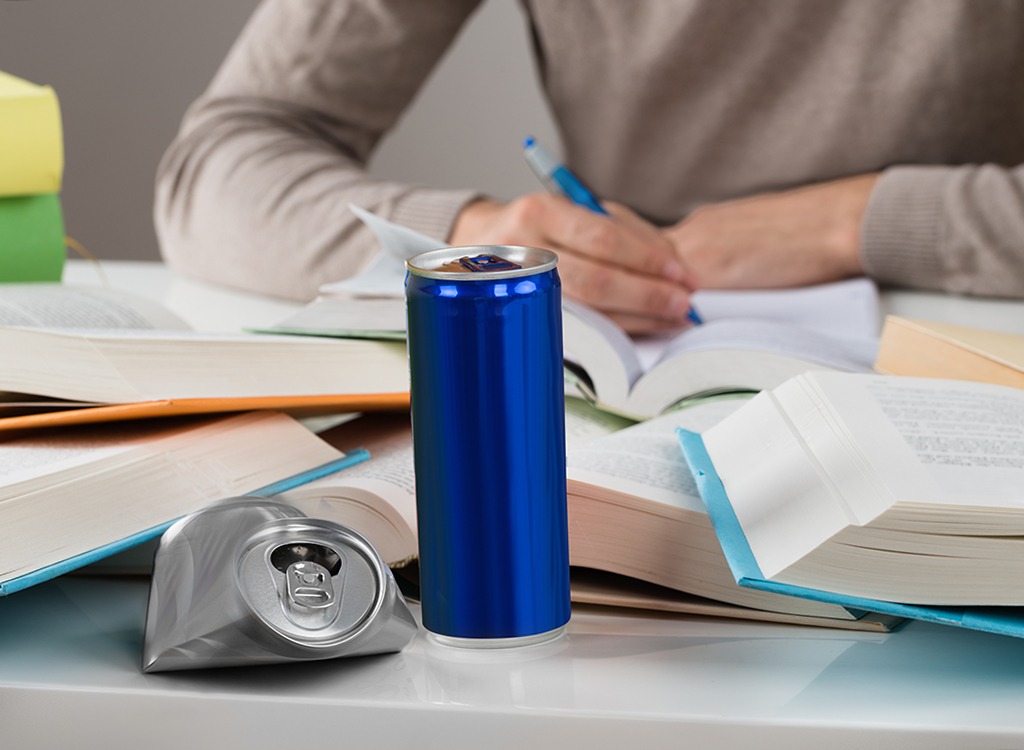
Knocking back a tasty drink that promises to increase mental alertness, energy, and physical performance sounds pretty amazing to those who need an extra boost. But while downing an energy drink can make people get a little more pep in their step, drinking them can cause you to feel some pretty uninvited effects.
What are energy drinks?
As the name implies, energy drinks are beverages that are formulated to give you more energy. Made with ingredients like taurine, ginseng, and sugar, these convenient concoctions are loaded with stimulants that are known to support factors like energy levels and mental focus. As such, these drinks are classified as dietary supplements in the United States and are therefore not regulated very closely.
But the shining star of the energy drink show is caffeine, a stimulant that can make people feel more energy. These drinks can have an excessive amount of caffeine—ranging from 50 to 505 milligrams per serving. For comparison, a standard cup of coffee contains approximately 100 mg of caffeine, a cup of black tea contains 30 mg, and a can of regular soda contains 34 mg. (Related: Here's Exactly How Much Caffeine Is Too Much Caffeine)
Energy drinks can come in a wide variety of choices. From sugar-free to a B-vitamin boost, consumers have no shortage of choices when selecting their optimal concoction. And considering how sales of energy drinks in the US have increased by 240% between 2004 and 2009, consuming these solutions appears to be a trend that is not going away any time soon.
The risks of energy drink ingredients.
While many of the ingredients found in energy drinks are natural and may sound like a healthful choice, including them in your lifestyle comes with some risk. In fact, over a five-year span, the number of energy drink-related visits to emergency departments doubled, climbing from 10,068 to 20,783 cases. In 2011 alone, 1 in 10 of these visits resulted in hospitalization.
Gulping down an energy drink can result in some specific unsavory outcomes that can easily be avoided by choosing an alternate and more healthful way to support your energy levels — think ensuring you are getting 7-8 hours of sleep every night or getting more movement into your day. But if you are going to continue to partake in the energy drink trend, here are 12 potential effects you should be aware of before you crack open your next can. Read on, and for more on healthy eating, don't miss The Best Energy Drinks For 2020 (And Which to Avoid).
You may experience caffeine intoxication.
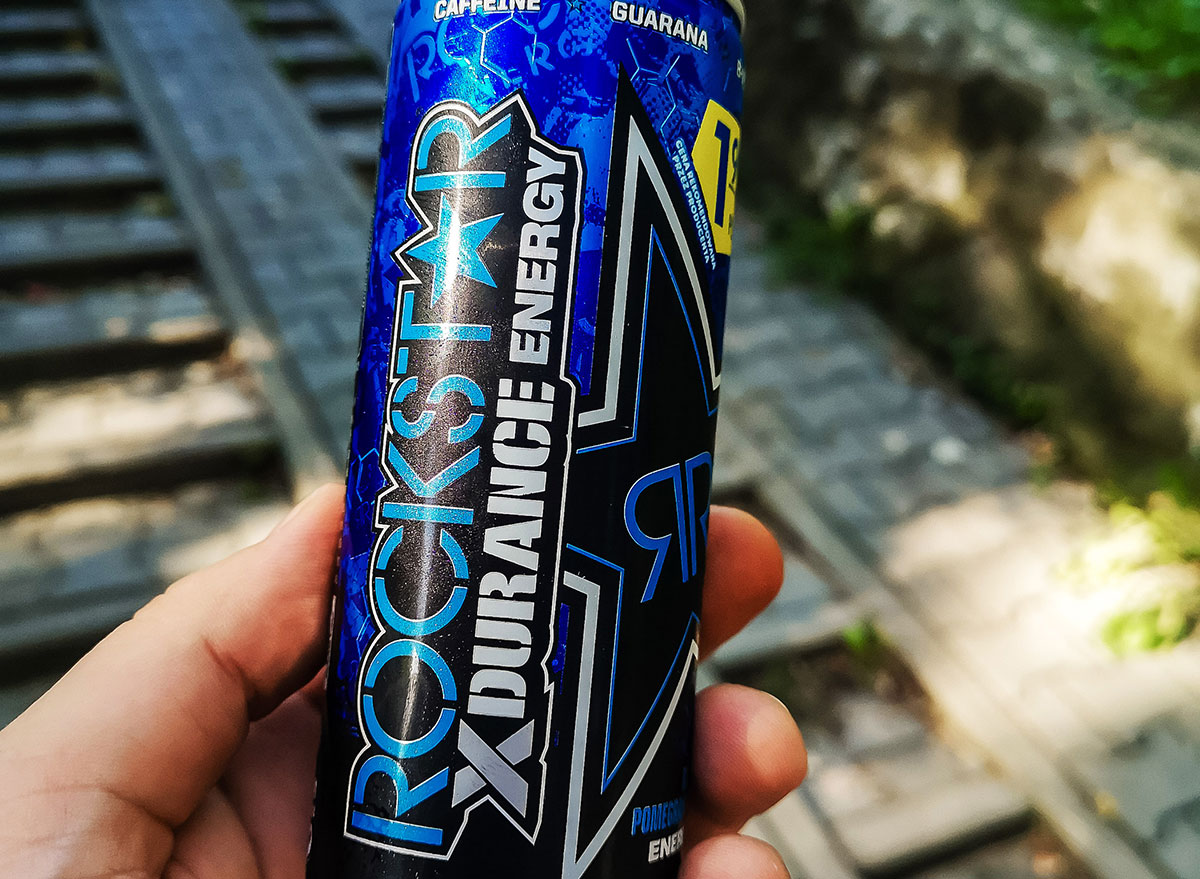
Consuming too much caffeine can result in acute caffeine intoxication, a condition that leads to people experiencing things like vomiting, seizures, increased heartbeat, and more. And while you can experience this from consuming any source of caffeine, your chances of feeling these effects are much higher with energy drinks considering how much caffeine some varieties contain.
You may experience heart trouble.
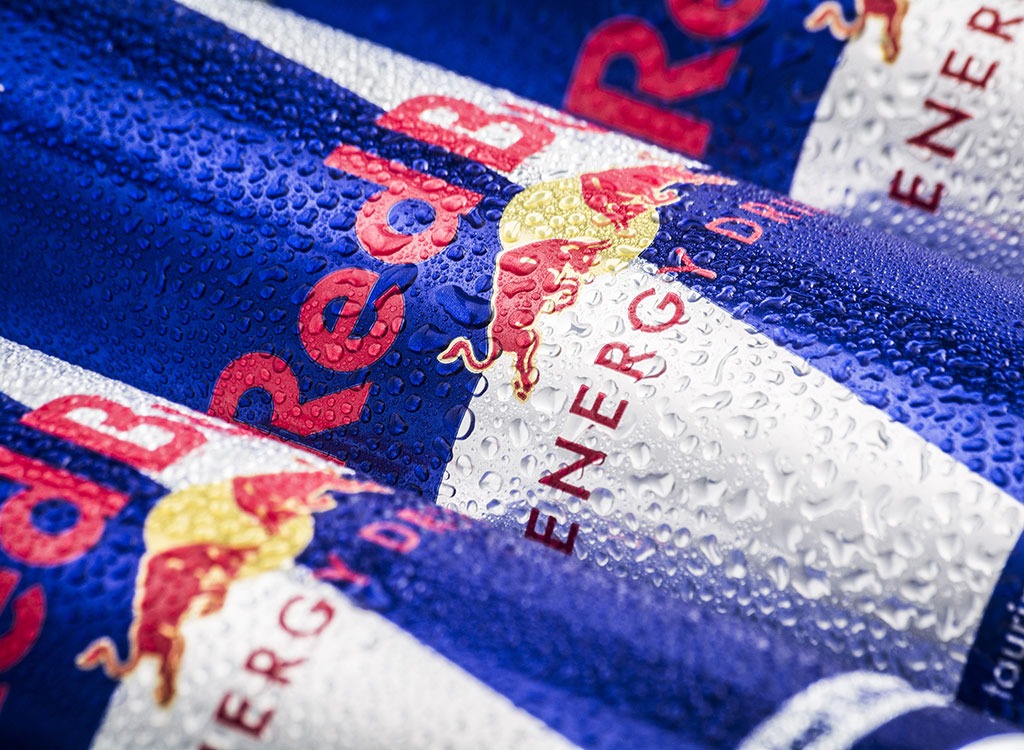
Irregular heartbeat is a common concern for regular energy drink consumers and general caffeine consumers alike. So if you are choosing an energy drink with excessive amounts of this stimulant, you may notice your heart beating in a way that you are not used to.
You may have trouble sleeping.

Those who drink energy drinks may have difficulty falling asleep. And not sleeping well can cause a person to feel sluggish the next day, leading them to seek a solution for their lack of energy. Enter an energy drink, which can cause sleeplessness—wash, rinse, and repeat. In addition to energy drinks, if you can't sleep, Avoid These 17 Foods That Keep You Up at Night.
You may feel nervous.

Consuming energy drinks is linked to increased nervousness. If you are generally a more anxious person, regularly drinking these beverages may not be the best match for you.
You may partake in other risky behavior.
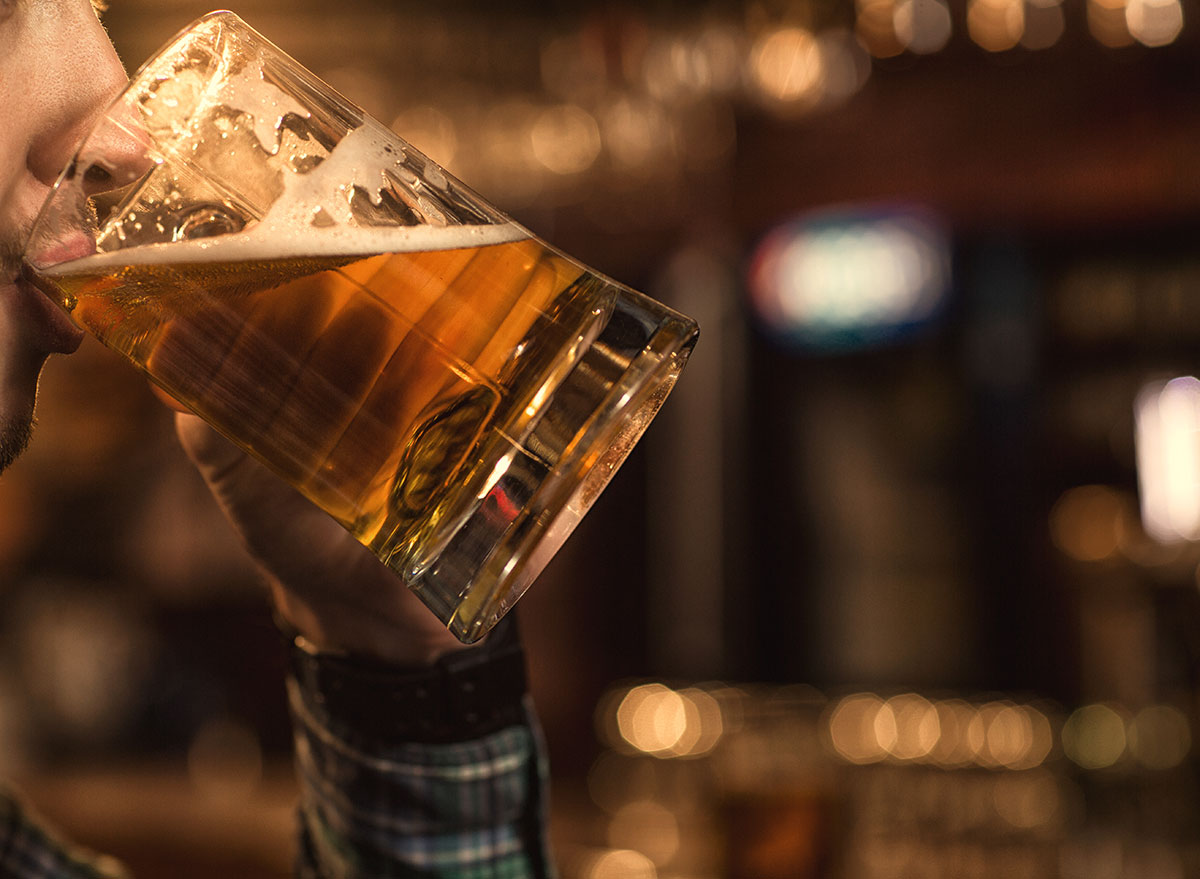
It is becoming more commonplace for people to combine energy drinks with other less-healthful substances, whether it is alcohol, cannabis, or tobacco. Some may even call it a "gateway drink". So, if you are regularly drinking energy drinks, it appears that the chances of partaking in other unhealthy behaviors are increased as well.
You may not realize you are intoxicated.

A newer trend is for people to combine energy drinks with alcohol or other drugs. Combining the stimulation of the caffeine with the depressant effect of the alcohol has been linked to impaired perception of one's state of drunkenness, which can result in unsafe behaviors like drunk driving.
Related: What Happens When You Drink a Glass of Wine Every Night
Men may experience fertility challenges.
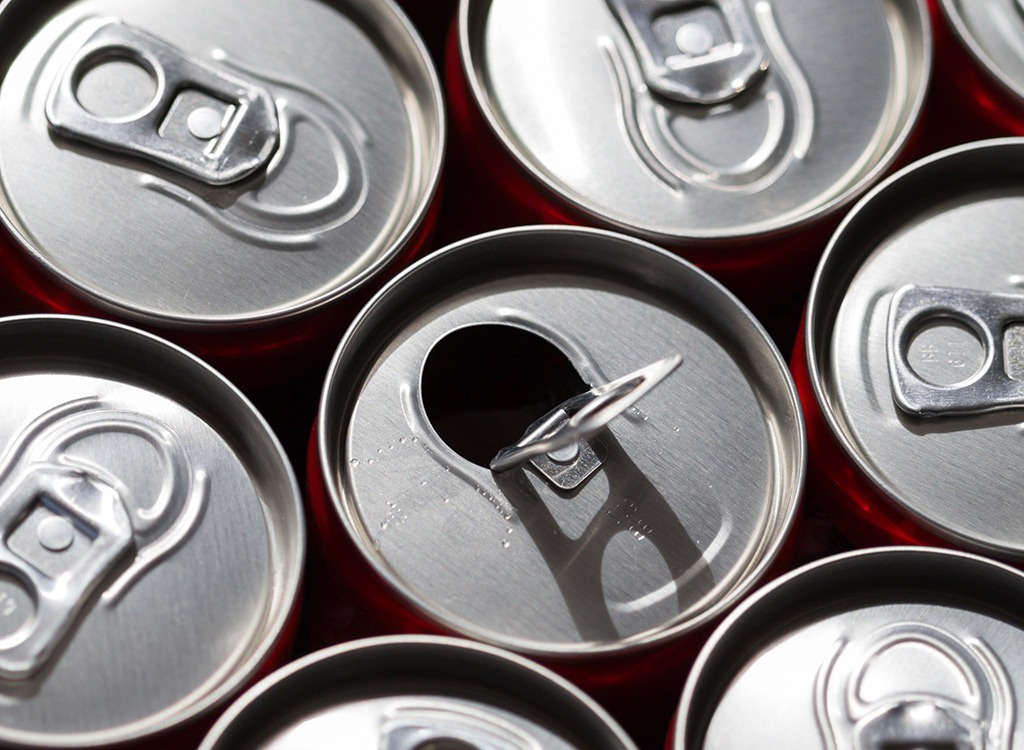
When a couple is trying to conceive, oftentimes the female's diet is monitored with a microscope. But the male's side of the equation is equally as important. And if he drinks an excessive amount of energy drinks, he may experience challenges in his reproductive function and therefore have difficulty conceiving.
Increased blood pressure.
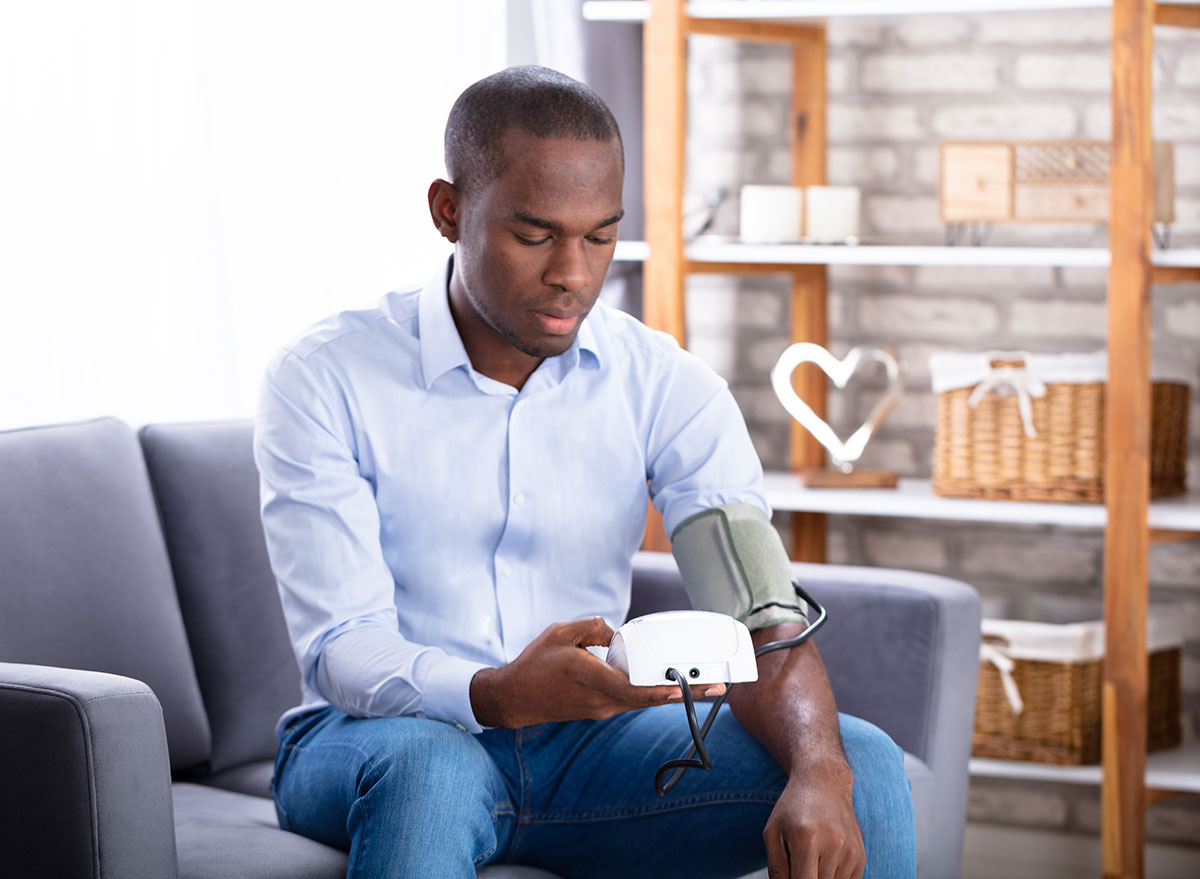
Drinking energy drinks can increase systolic blood pressure within a brief period of time after drinking. If you are trying to manage your blood pressure in a healthy way, energy drinks are not the best beverage to include in your diet for this reason.
Increase blood glucose.

Drinking energy drinks may cause your blood sugars to increase—an effect that people with diabetes certainly should look out for.
May negatively affect dental health.

Since energy drinks are often made with sugar and the pH values are below the critical value (5.5) associated with dental erosion, drinking them can wreak havoc on your dental health. Specifically, dental erosion and cavity risk can increase.
May increase risk of obesity.
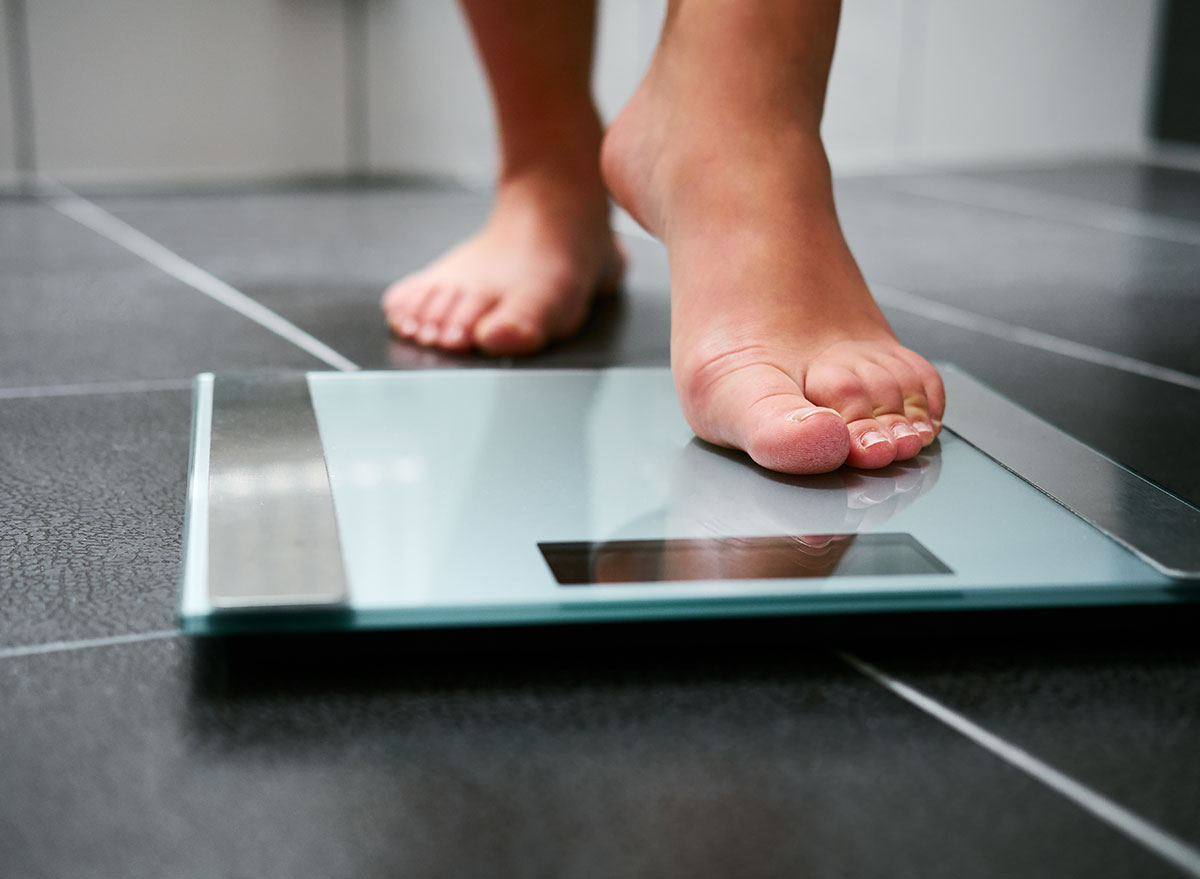
Drinking sugary drinks does not support weight management goals. And specifically, regularly drinking energy drinks can increase your risk of developing obesity.
Can make heartburn worse.

Stimulants like caffeine can make acid reflux symptoms flare-up. So if you suffer from heartburn and are downing energy drinks like there is no tomorrow, don't be surprised if you feel that burning sensation shortly after consumption. For more, see What One Energy Drink Does to Your Body.

